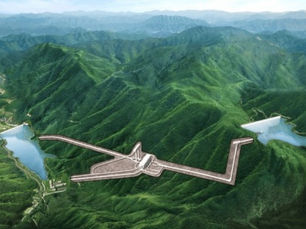New 2 MW Energy Community Underway in Tenerife
- Energy Box

- Apr 28, 2024
- 3 min read
Julián Monedero, CEO of the Tenerife company awarded the works, Dobontech, explained that this photovoltaic project will consist of more than 20 installations located in different parts of the La Campana industrial estate. Furthermore, he indicated that the planned investment for the energy community is four million euros for 2,094 kW, a nominal power of 2,000 kW, and 1,000 kWh of storage capacity.
The “El Rosario Solar” photovoltaic solar energy installations project for self-consumption consists of a series of rooftop photovoltaic installations in a collective self-consumption regime in the La Campana industrial estate and its electrical distribution microgrid.
With an available surface area of 154,200 square meters, the renewable energy generating activity located on the roofs can be consumed in the industrial warehouses of the estate and in residential areas within two kilometers, as well as allocating the surplus to the sale of energy up to complete the recovery of the investment made.
From now on, the execution phase of the project will begin for the installation of photovoltaic energy systems and the approval of the roof transfer agreements with which, initially, the cleanly generated electricity will be shared among 400 neighbors. of centers of Radazul, Costanera, Tabaiba and El Chorrillo and companies from the La Campana industrial estate.
As Julián Monedero, CEO of the Tenerife company awarded the project, Dobontech, informed pv magazine , this photovoltaic system will consist of more than 20 installations located in different parts of the La Campana industrial estate. In addition, all the investors and batteries in the project will be from the brand Chinese Huawei.
The supports for the solar panel structures are provided by the Valencian manufacturer Sunfer. These coplanar structures for metal roofs are compatible with simple, sandwich, corrugated, imitation tile and standing seam sheets. The distribution company that collaborates in the project is Green Efficient Solutions from Tenerife.
The first installation of the project was completed last week, and consists of 86 580 W solar panels of TOPCon technology from the Chinese brand Astronergy and the Astro N5 model CHSM72N(DG)/F-BH, and an inverter from the Chinese brand Huawei's 50 kW KTL model.
Monedero explained that the execution period for each installation is one week, and that the project will be completed at the end of this year. On the other hand, he indicated that the return on investment will be three to six years depending on the type of client and their consumption profile.
"The objective of the project is to promote energy generation in commercial estates that have a large surface area, 'a lot of cover', and that are not characterized by large consumption as they are warehouses, facilitating access to said energy in the areas adjacent urban areas that are very populated, and that have very little surface area as they are vertical residential, thus matching supply with demand,” Monedero commented.
The main technical challenge that Monedero pointed out is that of battery management, these are from the Huawei brand and the LUNA2000-10-S0 model, since as it is collective self-consumption this varies depending on the aggregate consumption of consumers. associated with the installation, both residential and industrial. “As there are not many products available for this, it has been necessary to adapt the battery management software for self-consumption through the network and in an aggregate manner,” concluded Monedero.
According to the governing board, the self-consumption and savings models for the members of “El Rosario Solar” provide for direct savings of 70% and estimated savings for compensation of surplus energy discharged into the grid of 60%. Furthermore, the investment required to install panels in a single-family home is 40% lower compared to the current market price.
The planned investment of the energy community is four million euros for 2,094 kW and a nominal power of 2,000 kW, and in addition, 1,000 kWh of storage capacity.
The project will be financed by public subsidies and contributions from residential and industrial partners. The intended objective is that part of the value received from subsidies will be passed on to the partners to help reduce the period to recover their investment. The island government together with the energy community continue to recruit more companies from the La Campana industrial estate to give up their roofs and join the initiative.
The regional councilor Mariano Hernández explained that "from the Government of the Canary Islands we have the ambitious objective of reaching 58% penetration of renewables in the Canary Islands because we are currently very far from the national average." For this reason, the person in charge of Ecological Transition and Energy announced that "the energy community will have help from part of the Next Generation funds, of the total of 500 million that we manage from the Ministry."















Comments